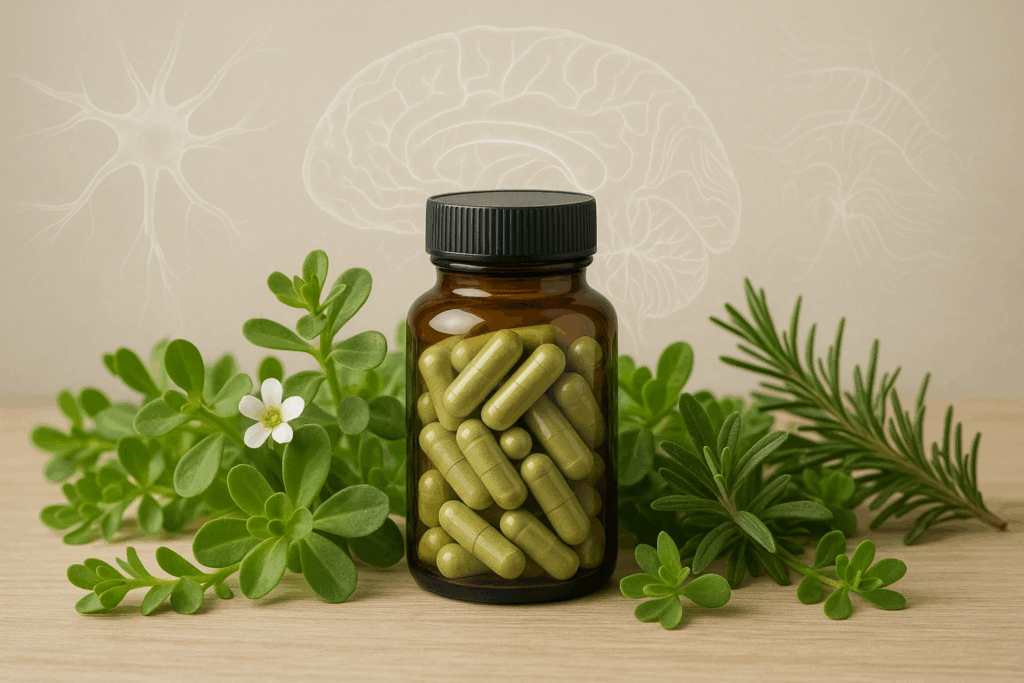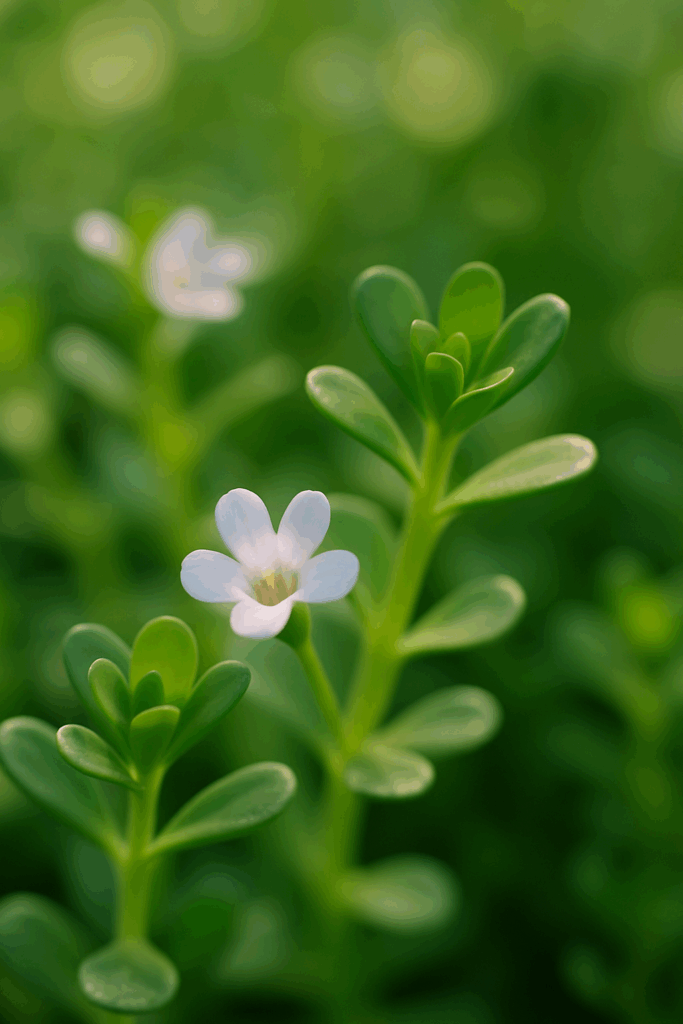Introduction: Understanding ADHD in Women and the Need for Natural Remedies
Attention Deficit Hyperactivity Disorder (ADHD) is often seen as a condition that primarily affects children, but for many individuals, its symptoms continue into adulthood. Among adults, women are often underdiagnosed or misdiagnosed with conditions such as anxiety or depression, even though their primary struggles may be related to ADHD. Women with ADHD frequently face unique challenges, such as hormonal fluctuations that can exacerbate symptoms of memory lapses, distractibility, and emotional dysregulation. As research into ADHD continues to evolve, it’s becoming increasingly clear that the disorder manifests differently in women compared to men, calling for tailored treatment approaches.
In the past, the primary treatment for ADHD has been stimulant medications, such as Ritalin or Adderall. However, these medications come with a range of potential side effects, leading many to seek natural remedies as complementary or alternative options. Herbal solutions, in particular, have been gaining attention for their potential to improve focus, memory, and cognitive function in those with ADHD. This article explores the best herbs for ADHD in women, emphasizing the science-backed benefits of natural remedies that can help improve memory and brain function, areas often compromised in those with ADHD.
By focusing on the intersection of herbal medicine and neuroscience, this article will address the potential benefits of various herbs, including Bacopa Monnieri, Ginkgo Biloba, Rhodiola Rosea, and Gotu Kola, and explore how they can support women struggling with ADHD. In doing so, we will integrate findings from memory studies, cognitive function research, and clinical trials to highlight how these herbs may offer meaningful improvements in focus, memory retention, and overall cognitive support.
The Impact of ADHD on Women: A Unique Perspective
ADHD in women often goes unnoticed or is misdiagnosed due to the subtle nature of symptoms and the overlap with other mental health conditions, such as anxiety and depression. Unlike the hyperactive symptoms commonly observed in young boys, women with ADHD often exhibit symptoms such as chronic forgetfulness, disorganization, and an inability to concentrate. These symptoms can lead to significant challenges in both personal and professional life, affecting relationships, career progress, and emotional well-being.
What research can we use on memory when exploring ADHD in women? Studies have shown that ADHD can affect various cognitive processes, including attention span, working memory, and emotional regulation. Hormonal changes throughout the menstrual cycle can exacerbate symptoms, leading to periods of increased forgetfulness or difficulty maintaining focus. As a result, there is an increasing demand for natural remedies that can help mitigate these cognitive challenges and enhance overall brain function.
Herbal remedies, in particular, offer a non-invasive approach to managing these cognitive challenges, with certain herbs showing promise in improving attention, memory retention, and focus. These herbs are not only aimed at addressing the underlying neurobiological mechanisms of ADHD but also at supporting brain health, cognitive clarity, and emotional stability in women.
The Role of Herbal Medicine in Cognitive Enhancement
Herbal medicine has been used for centuries across various cultures for its cognitive-enhancing properties. In recent years, there has been a surge in scientific studies investigating the effects of herbs on memory and brain function. Research suggests that certain herbs can improve neurotransmitter balance, enhance blood flow to the brain, and reduce oxidative stress—key factors that influence cognitive performance and memory.
One of the key advantages of using herbs for ADHD is their adaptability to individual needs. For women with ADHD, who may experience different cognitive challenges due to hormonal fluctuations, herbs offer a more personalized approach to treatment. The following sections will delve into the top herbs for ADHD in women, exploring the scientific evidence supporting their use and providing practical insights on how these herbs may help improve cognitive function and support brain health.

Bacopa Monnieri: Enhancing Memory and Focus
Bacopa Monnieri is an herb used in Ayurvedic medicine for its cognitive-enhancing properties. Known for its ability to improve memory retention and processing speed, Bacopa has been the subject of numerous studies examining its effects on cognitive function. Research has shown that Bacopa can enhance working memory, which is a critical area often affected in individuals with ADHD.
In addition to its memory-enhancing properties, Bacopa also acts as an adaptogen, helping the body cope with stress. For women with ADHD, who often experience increased stress due to the demands of balancing personal, professional, and familial responsibilities, Bacopa can provide an additional layer of support. Studies on memory and brain function highlight Bacopa’s ability to modulate the cholinergic system in the brain, which plays a crucial role in memory and learning.
What research can we use on memory when evaluating Bacopa? A well-known double-blind, placebo-controlled trial demonstrated that Bacopa supplementation significantly improved cognitive performance in tasks requiring memory recall and attention. These findings are particularly relevant for individuals with ADHD, as working memory deficits are a hallmark of the disorder. By enhancing memory and cognitive processing, Bacopa offers a natural remedy for improving focus and mental clarity in individuals with ADHD.

Ginkgo Biloba: Improving Blood Flow and Cognitive Clarity
Ginkgo Biloba is another herb that has gained attention for its cognitive benefits, particularly in relation to attention and mental clarity. Ginkgo works by increasing blood circulation to the brain, which in turn enhances oxygen and nutrient delivery to brain cells. This improved blood flow is particularly beneficial for individuals with ADHD, who often struggle with maintaining focus and mental alertness.
What research can we use on memory to validate Ginkgo’s effectiveness in ADHD? Studies have shown that Ginkgo can improve memory retention and task persistence, which are key challenges for individuals with ADHD. One study involving adults with ADHD found that Ginkgo supplementation improved attention and cognitive performance, especially in tasks requiring sustained mental effort. This effect is likely due to Ginkgo’s ability to enhance neuroplasticity—the brain’s ability to form new connections and reorganize existing ones.
For women with ADHD, Ginkgo’s ability to improve circulation to the prefrontal cortex—the region of the brain responsible for executive function and attention—can provide significant cognitive benefits. By enhancing neuroplasticity and improving blood flow to areas of the brain associated with focus and attention, Ginkgo can help mitigate some of the cognitive challenges faced by women with ADHD.

Rhodiola Rosea: Balancing Neurotransmitters and Reducing Fatigue
Rhodiola Rosea, a popular adaptogen, has been studied for its ability to reduce mental fatigue and improve focus. Adaptogens are substances that help the body adapt to stress, and Rhodiola is known for its ability to balance neurotransmitter levels, particularly serotonin, dopamine, and norepinephrine. These neurotransmitters play a critical role in mood regulation, attention, and focus, all of which are commonly impaired in individuals with ADHD.
What research can we use on memory when evaluating Rhodiola’s effectiveness in ADHD? Research on memory and brain function has shown that Rhodiola can reduce mental fatigue, enhance short-term memory, and improve cognitive performance. This is especially important for individuals with ADHD, who often experience cognitive overload and difficulty maintaining focus for extended periods. Rhodiola’s ability to balance neurotransmitter levels and reduce mental fatigue makes it an effective herb for supporting cognitive function in women with ADHD.

Frequently Asked Questions (FAQ): Best Herb for ADHD and Natural Cognitive Support
- What is ADHD and how does it affect adults and women differently?
ADHD, or Attention Deficit Hyperactivity Disorder, is commonly associated with childhood, but its symptoms can persist into adulthood. In adults, particularly women, the signs of ADHD often present differently than in children. Women with ADHD may experience more subtle symptoms such as inattentiveness, emotional dysregulation, and difficulty with time management rather than the typical hyperactive behaviors observed in boys. Research shows that hormonal fluctuations in women can exacerbate attention and memory challenges linked to ADHD. What research can we use on memory in women with ADHD highlights the importance of considering hormonal cycles when assessing the cognitive challenges faced by women with ADHD, as these fluctuations can influence neurotransmitter levels and executive function.
- How do herbs support memory and cognitive function in individuals with ADHD?
Herbs such as Bacopa monnieri, Ginkgo biloba, and Rhodiola rosea have been studied for their potential to improve memory, focus, and brain function in individuals with ADHD. These herbs work by supporting neurotransmitter balance, reducing stress, and enhancing blood flow to the brain. Bacopa, for instance, has been shown to improve working memory, a critical area often impaired in ADHD. Memory and brain function research supports the idea that these herbs may help by modulating the brain’s chemical pathways, which can enhance cognitive clarity and task performance. What research can we use on memory further indicates that long-term use of these herbs can lead to more consistent cognitive improvement.
- What research can we use on memory to validate the effectiveness of Bacopa monnieri for ADHD?
Numerous studies have explored the cognitive-enhancing properties of Bacopa monnieri, particularly its impact on working memory and attention. One double-blind, placebo-controlled study found that Bacopa supplementation improved attention span and cognitive processing speed in adults. These findings support the idea that Bacopa can help address the memory and focus issues associated with ADHD. Additionally, Bacopa’s ability to modulate the cholinergic system, which is crucial for memory and learning, further validates its use as a natural remedy for ADHD. The research surrounding memory study in ADHD suggests that Bacopa’s benefits extend beyond short-term effects, making it a viable long-term solution.
- How does Ginkgo biloba contribute to cognitive support in individuals with ADHD?
Ginkgo biloba is well-known for its ability to enhance cerebral blood flow, which is essential for brain function. By increasing blood flow to areas of the brain that control focus and attention, Ginkgo may help individuals with ADHD manage symptoms more effectively. Memory and brain function studies have shown that Ginkgo improves attention and task persistence, which are common challenges for those with ADHD. In one clinical trial, adults with ADHD who took Ginkgo saw improved cognitive performance and reduced distractibility. What research can we use on memory further emphasizes that the neuroplasticity-enhancing effects of Ginkgo could be particularly beneficial in individuals with ADHD, as they struggle with maintaining mental clarity and processing information.
- Can Rhodiola rosea help reduce ADHD symptoms like mental fatigue and poor focus?
Rhodiola rosea is an adaptogen, meaning it helps the body adapt to stress and improves resilience. For individuals with ADHD, who often experience mental fatigue and difficulty focusing, Rhodiola’s ability to modulate neurotransmitter levels can be a game-changer. Studies on memory and brain function have shown that Rhodiola can reduce mental fatigue and enhance focus, both of which are critical for individuals managing ADHD. What research can we use on memory suggests that Rhodiola’s ability to balance serotonin, dopamine, and norepinephrine makes it an ideal herb for supporting mood and cognitive performance in ADHD sufferers. Its calming yet energizing effects help individuals manage the stress that often exacerbates ADHD symptoms.
- What makes Gotu kola a beneficial herb for ADHD, especially in women?
Gotu kola is revered in Ayurvedic medicine for its ability to improve memory, reduce anxiety, and enhance cognitive function. It supports brain health by improving circulation and stimulating neurogenesis, the process by which the brain generates new cells. Studies indicate that Gotu kola enhances working memory and recall, which are often impaired in individuals with ADHD. For women with ADHD, who may experience cognitive fluctuations due to hormonal changes, Gotu kola can provide gentle, sustainable cognitive support without overstimulation. Memory studies in ADHD highlight Gotu kola’s potential to address cognitive fog and fatigue, making it a valuable addition to any ADHD management plan.
- How does saffron influence ADHD symptoms and improve cognitive performance?
Saffron has been shown to have a significant impact on memory and cognitive function, which is particularly beneficial for individuals with ADHD. Its active compounds, crocin and safranal, have been found to increase serotonin and dopamine levels in the brain, both of which are vital for attention and focus. What research can we use on memory suggests that saffron can improve long-term potentiation, a process essential for learning and memory consolidation. Studies have demonstrated that saffron is as effective as methylphenidate (a common ADHD medication) in reducing symptoms of ADHD in children. Its neuroprotective properties also help reduce oxidative stress in the brain, offering additional benefits for cognitive health in individuals with ADHD.
- What role do adaptogenic herbs like Rhodiola and Bacopa play in managing ADHD symptoms?
Adaptogens like Rhodiola and Bacopa play a key role in managing ADHD by helping the body cope with stress and supporting cognitive function. These herbs help balance neurotransmitters in the brain, which is crucial for individuals with ADHD who often experience imbalances in dopamine and norepinephrine. Memory and brain function studies suggest that adaptogens can reduce the mental fatigue and distractibility that often accompany ADHD. Rhodiola, for example, can help maintain focus during times of stress, while Bacopa enhances memory and information processing. What research can we use on memory in adaptogens shows that these herbs provide long-term benefits by fostering cognitive resilience in the face of ongoing mental challenges.
- Are there any risks or side effects associated with using herbs for ADHD?
While herbs such as Bacopa, Ginkgo, and Rhodiola are generally considered safe for most individuals, they can cause side effects in some people. For example, Ginkgo biloba may increase the risk of bleeding, particularly if combined with blood-thinning medications. Rhodiola can cause mild side effects such as irritability or dizziness in some individuals, especially when taken in large doses. It is essential to consult with a healthcare provider before starting any herbal regimen, especially if you are already taking prescription medications for ADHD. What research can we use on memory suggests that understanding potential interactions between herbs and medications is crucial for ensuring safe and effective use.
- How can I incorporate herbs into my daily routine to manage ADHD symptoms effectively?
To incorporate herbs like Bacopa, Ginkgo, and Rhodiola into your daily routine, it’s important to start with the correct dosage and consider the best time to take each herb. Bacopa, for instance, is most effective when taken consistently over a period of weeks, as it helps build cognitive support gradually. Ginkgo, on the other hand, can be taken in the morning to help enhance focus throughout the day. Rhodiola is best taken earlier in the day, as it can provide an energizing effect. Memory studies in ADHD emphasize the importance of combining these herbs with other lifestyle changes, such as exercise, a balanced diet, and cognitive training, for optimal results. What research can we use on memory underscores that the synergistic effects of herbs and lifestyle adjustments can provide comprehensive support for managing ADHD symptoms.style adjustments can provide comprehensive support for managing ADHD symptoms.

Gotu Kola: Supporting Memory Consolidation and Cognitive Clarity
Gotu Kola is an herb with a long history of use in traditional medicine, particularly in Ayurvedic and Traditional Chinese Medicine. Known for its ability to improve circulation to the brain and promote memory consolidation, Gotu Kola has shown promise in enhancing cognitive function, particularly in older adults. For individuals with ADHD, Gotu Kola may help improve memory recall and reduce cognitive fog, which are common issues faced by those with the disorder.
What research can we use on memory to support Gotu Kola’s effectiveness? Studies on Gotu Kola have shown that it can improve working memory and recall, particularly in individuals with cognitive impairments. For women with ADHD, who may experience cognitive fluctuations due to hormonal changes, Gotu Kola’s ability to support memory consolidation and enhance brain circulation can offer substantial benefits. Gotu Kola’s calming effects on the nervous system also make it a suitable choice for individuals with ADHD who struggle with anxiety and stress.itive health that is both effective and deeply affirming.
Further Reading:
Selecting Effective Herbal Medicines for Attention-Deficit/Hyperactivity Disorder via Text Mining of Donguibogam


